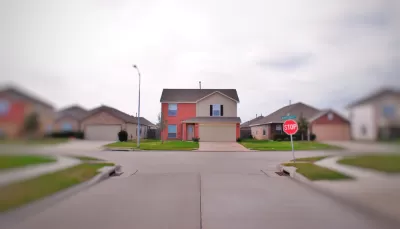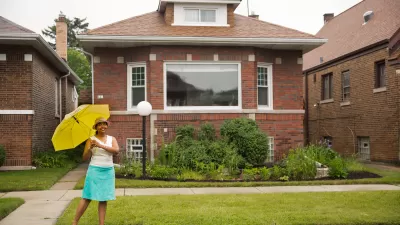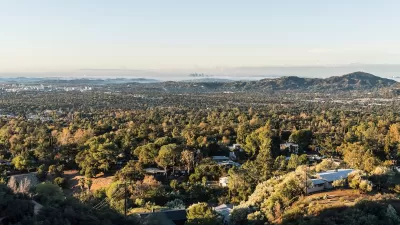Hispanics are the only racial group projected to increase their rate of homeownership over the next two decades, according to a new analysis.

R.A. Schuetz shares news of a new study from the Urban Institute that anticipates the growth of homeownership rates among Hispanic Americans. The report presents the trend as a reflection of the lingering impacts of the Great Recession.
"Between 2020 and 2040, there will be 6.9 million net new homeowner households, a 9 percent increase," writes Laurie Goodman to share the report's findings on the Urban Institute website. "Hispanic homeowners will grow by 4.8 million, homeowners of other races (mostly Asian homeowners) will grow by 2.7 million, and Black homeowners will grow by 1.2 million. The total number of white homeowners will decline by 1.8 million."
New homeownership among Black Americans will not keep pace with the increasing number of Black renters, however. "If current policies stay the same, the Black homeownership rate will fall well below the rate of previous generations at the same age and result in an unprecedented number of Black renters over 65; we project elderly Black renters will more than double from 1.3 million in 2020 to 2.6 million in 2040," writes Goodman.
Schuetz cites the experience of a real estate in Houston as evidence that more Hispanic residents are buying houses.
The report suggests that the shifting geography and demographics of homeownership will require new approaches to mortgage qualification. Two challenges in potential hinder BIPOC homeowners, according to Schuetz: "Workers who are self-employed or participate in the gig economy have a difficult time proving their income to the satisfaction of lenders, and it is difficult to count multigenerational households or roommates if they are not all on the mortgage…"
FULL STORY: Hispanic homeownership rates poise to rise as other homeownership rates stall [paywall]

Alabama: Trump Terminates Settlements for Black Communities Harmed By Raw Sewage
Trump deemed the landmark civil rights agreement “illegal DEI and environmental justice policy.”

Planetizen Federal Action Tracker
A weekly monitor of how Trump’s orders and actions are impacting planners and planning in America.

Why Should We Subsidize Public Transportation?
Many public transit agencies face financial stress due to rising costs, declining fare revenue, and declining subsidies. Transit advocates must provide a strong business case for increasing public transit funding.

Understanding Road Diets
An explainer from Momentum highlights the advantages of reducing vehicle lanes in favor of more bike, transit, and pedestrian infrastructure.

New California Law Regulates Warehouse Pollution
A new law tightens building and emissions regulations for large distribution warehouses to mitigate air pollution and traffic in surrounding communities.

Phoenix Announces Opening Date for Light Rail Extension
The South Central extension will connect South Phoenix to downtown and other major hubs starting on June 7.
Urban Design for Planners 1: Software Tools
This six-course series explores essential urban design concepts using open source software and equips planners with the tools they need to participate fully in the urban design process.
Planning for Universal Design
Learn the tools for implementing Universal Design in planning regulations.
Caltrans
Smith Gee Studio
Institute for Housing and Urban Development Studies (IHS)
City of Grandview
Harvard GSD Executive Education
Toledo-Lucas County Plan Commissions
Salt Lake City
NYU Wagner Graduate School of Public Service




























